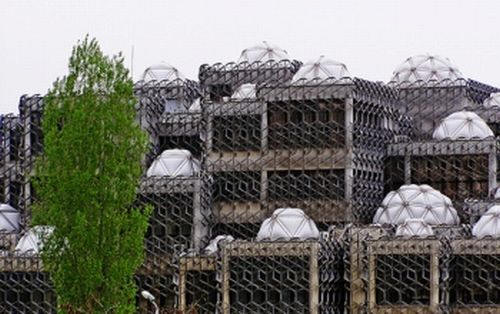BACKGROUND
From our work in Kosovo, we have learned that one important
deficiency of the Kosovo education system, despite many
reforms currently underway, remains the lack of modern
literature,
especially of that in social sciences and humanities. For
any student and aspiring scholar, having access to the
necessary literature is of fundamental importance for
quality education. Given the weak socio-economic conditions
of Kosovo and the high rate of poverty, it is impossible for
the majority of Kosovo students to be able to afford buying
modern literature - books, journals, etc. They mostly rely
on libraries - namely the Kosovo National and University
Library as well as smaller libraries of the many private
universities - for access to literature for studies and
research. But, the Kosovo National and University Library as
well as other libraries throughout Kosovo have been heavily
damaged during the Kosovo War of 1998-99 and to date have
not been able to offer the necessary literature to Kosovo
students due to lack of funds for acquiring new titles.
PURPOSE
The purpose of this project is to collect used literature
(mainly books) that university libraries can donate or have
to discard (older editions of the books when new ones come
in). We are especially looking to collect books in the
field of economics, international development,
political science, business/management, and
current affairs (including Canadian studies,
modern history, human rights, etc.).
NOVA SCOTIA - THE UNIVERSITY CAPITAL
OF CANADA
Nova Scotia has the highest number of universities on a per
capita basis in Canada. There are a total of eleven
institutions of higher learning in Nova Scotia. So, we are
starting this project here for two reasons: it is easier to
collect books from so many institutions in a driving range
from Halifax, where the founder and president of the
Foundation currently resides (being a PhD student at
Dalhousie), and the spirit of giving and enhancing the
quality of education, and with that the quality of life, for
those in need has never lacked among Nova Scotians.
Because we hope to primarily collect books from university
libraries in Nova Scotia, we have named the project the
Atlantic International Library of Kosovo (AILK).
Therefore, we are kindly requesting Nova Scotia university
libraries to donate books in the field of economics,
political science, international development,
business/management and current affairs to the AILK
project. Each library as well as any other contributor
will, of course, be credited for the donation and its name
will be inscribed on the commemorative plaque of AILK at the
Kosovo National and University Library in Prishtina, Kosovo.
We will also properly and adequately acknowledge everyone's
contribution on all materials, press releases, and other
media and PR events and opportunities related to the AILK
project.
WHO CAN HELP?
- University libraries
- University departments, centres, institutes
- Individual professors and students
- Ordinary individuals wanting to donate their books
THE AILK
IN PRISHTINA
The AILK will be housed within the premises of the Kosovo
National and University Library and other university
libraries across Kosovo so as to make this literature
available to as many Kosovar students as possible.

The
National and University Library of Kosovo
TIME LINE
We plan
to complete our book collection drive by the end of
February. With the support of the Albanian Canadian
Community Association of Halifax, we will be renting a
climate-controlled storage unit where we will store all the
books until proper shipping arrangements are made. We hope
to have the books shipped to Prishtina by May 2011 and
inaugurate the Atlantic International Library of Kosovo by
mid- to late-May 2011.
YOU CAN
HELP!
If you are interested in helping us with this project,
please contact us. Also, feel free to contact us if you have
any questions or comments in regards to this project. The
AILK will certainly help tens of thousands of Kosovo
students in their pursuit of quality education, without
which they cannot be adequately prepared for the globalised
economy and job market of the twenty-first century. Your
contribution to this project is therefore very much
appreciated and represents a direct way of helping the young
generation of a post-war country become well educated and
better prepared for the future. To help,
contact us, please.

